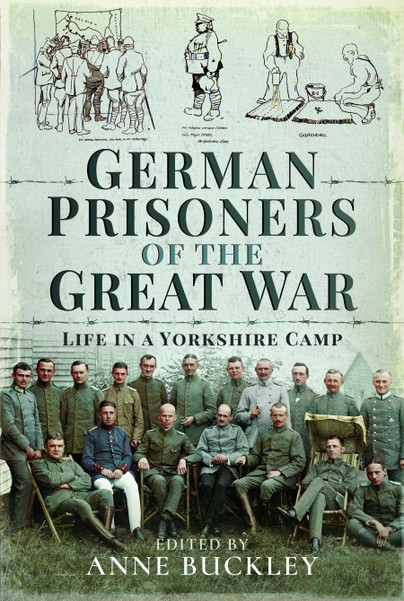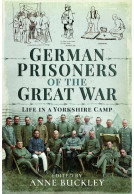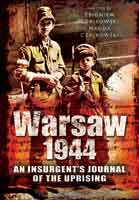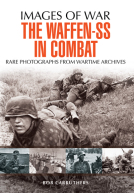German Prisoners of the Great War (Hardback)
Life in a Yorkshire Camp
Imprint: Pen & Sword Military
Pages: 352
ISBN: 9781526765291
Published: 9th February 2021
(click here for international delivery rates)
Need a currency converter? Check XE.com for live rates
| Other formats available | Price |
|---|---|
| German Prisoners of the Great… Paperback Add to Basket | £15.99 |
| German Prisoners of the Great… ePub (18.5 MB) Add to Basket | £6.99 |
- First full English translation of a German account of life in an English prisoner-of-war camp in Skipton, Yorkshire during the First World War
- Extensive introduction based on research carried out into the history of the camp and the German soldiers who were held there
- Vivid insight into the experience of the soldiers revealed through their own words
- Features graphic illustrations drawn by the prisoners
- A rare direct view of a neglected aspect of First World War history
- Describes work done with the local community to uncover the story of the camp including archaeology and film making
In Munich in 1920, just after the end of the First World War, German officers who had been prisoners of war in England published a book they had written and smuggled back to Germany. Through vivid text and illustrations they describe in detail their experience of life in captivity in a camp at Skipton in Yorkshire. Their work, now translated into English for the first time, gives us a unique insight into their feelings about the war, their captors and their longing to go home.
In their own words they record the conditions, the daily routines, the food, their relationship with the prison authorities, their activities and entertainments, and their thoughts of their homeland. The challenges and privations they faced are part of their story, as is the community they created within the confines of the camp. The whole gamut of their existence is portrayed here, in particular through their drawings and cartoons which are reproduced alongside the translation.
German Prisoners of the Great War offers us a direct inside of view a hitherto neglected aspect of the wartime experience a century ago.
This publication is important for two reasons. Firstly, it helps tell the story of the 120,000 German POWs who were held in the UK during the Great War. Their experience is virtually unknown and this book complements Richard Pursehouse’s recent Prisoners on Cannock Chase (Pen & Sword, 2020) that looks at German POWs at Brocton Camp in Staffordshire. Secondly, it gives a fascinating perspective on captivity, how soldiers coped with imprisonment and their activities to keep their morale up. For example, it tells of escape attempts and German POW perspectives on the March 1918 offensive.
Western Front Association
This is a fascinating, riveting and timely book.
"The book is recommended highly and faculty members and students of the University of Leeds are to be commended for their worthy efforts to bring the book to fruition." "The book is recommended highly and faculty members and students of the University of Leeds are to be commended for their worthy efforts to bring the book to fruition."
Over the Front
"...an important contribution to the historiography of World War I."
The Great War Society
Read the review here
It is as much a social history as well as being military history, telling the stories of soldiers behind a different kind of wire away from the front line. The POWs routine and treatment, including how they were received by the local civilian population, is well told.
Gun Mart, September 2021
It was really fascinating to think about German POW's in Britain. I tend to spend a lot of time reading WWII related material, and so I don't often think too much about what things look like from the other side, before the Germans really became famous as captors. This was an eye-opening, if at times a bit acerbic, account of a little remembered history.
NetGalley, Ionia Froment
A lot of mainstream books tend to glance over this topic without going into much detail, and I appreciated that this book really went into a greater depth describing these events. The research that went into this was obviously extensive and the writing was good and had an easy to follow flow.
I liked that there were stories about individual people as well as an overall history of how these men came to be where they were. I thought the author did a good job of bringing the reader a clear picture of life in a British POW camp and allowing us to experience the sights and sounds of years gone by.
I would definitely recommend this book to anyone interested in WWI and the lesser covered topics that often escape popular view.
The first full English translation of the account of life in Raikeswood camp during the First World War. Described as a “rare view of a hitherto neglected part of WW1 history”, it's a vivid insight into the soldiers’ experiences, in their own words, alongside their drawings of the camp.
Bradford Telegraph and Argus
Read the full review here
Rating: 5 out of 5 stars
NetGalley, Renée Costa
This book was very insightful for me, someone who's interested in history and this specific period of history, though it's one that's very hard for me to study, because of all the dehumanization that occurred during the ~5 years it lasted, though I don't think that's something personal, but more general. Of course, I won't say this was an enjoyable reading, as I don't feel that diving into this topic can be something to be enjoyed, but it was very informative and did answer and raise many questions, which I think is the point for that kind of work.
Sometimes as a history book blogger I review a good number of books, on the odd occasion you come across a real gem you love. I really enjoyed reading this book, I think because we as British only tend to think of prison camps in war as those we’ve seen in war films from ww2, like the Great Escape, etc. It was so interesting to read the same stories and experiences but from the other side. This book looks into practically every detail of life in a British prisoner of war camp you can think of, from everyday life, welfare and routine to the social aspect, getting along with guards and the regime they were having to learn to live under. It staggers me that we have heard little of these stories before or why they haven’t been circulated more, plus what did the authorities learn from having prison camps in WWI compared to WW2. There are some great photos inside but I have to say that I enjoyed all the prisoners artwork and drawing. The book has lots of recipes, poems, stories, menus and more. There is such a wide array of unexpected fun. At the end of the book, there is also a table of all the prisoners that were at the site and a good and detailed bibliography and notes section too. I would certainly recommend this book to all, it’s fantastic fun and detailed read.
UK Historian
Read the full review here
5 stars – A thoroughly researched and thoroughly recommended book packed with interesting first-hand detail from the prisoners who experienced prison camp life in Yorkshire a century ago.
Wakefield Historical Society
Click here to read article: ‘A book collectively written by German prisoners of war in a Yorkshire camp during the First World War has been translated into English for the first time. Chris Burn reports’
The Yorkshire Post, 9th March 2021
Article: ‘Translation of Skipton PoWs’ book now in print’, words by Viv Mason
Craven Herald and Pioneer, February 2021
Article: 'The life and times of a Skipton prisoner', words by Viv Mason
Craven Herald and Pioneer, 21st January 2021
Rating: 5 out of 5 stars
NetGalley, Brenda Carleton
"During the First World War, nearly 9 million of the 70 million soldiers mobilised globally spent time in enemy captivity." This statistic surprised me, as did many in this fascinating and eye-opening book written about the German officers held in a prison camp in Skipton, Yorkshire. I had no clue this particular place existed. But I do now. The first officers arrived in January, 1918 to a place which was initially used as a military training camp. Evidently 916 were held over a period of nearly two years. Interestingly, structures and materials were sold after taken down in 1920.
This historical account is largely comprised of writings by the officers themselves, always compelling, often humorous. We are taken through daily activities in this POW camp through their recorded details which are thankfully now put together here. And oh, what stories! They include a witty ode to an iron bed frame, sordid food descriptions and rations, joyful letter days, putting on plays and festivals, shower rituals (including the funny fake shower officers and the infernal trumpet!), vegetable crop failures, beautiful walks in the countryside, prisoneritis (what a sense of humour!), latrines (not what you think), library book loans, temporary interior decorating a nook, church services and many officers' views on God, influenza, chicken "surprise", all superbly written.
Finally, FINALLY after what must have felt like decades, the officers were told they would be leaving after war's end. But that turned out not to be true. Not yet. Of course this affected everything from food supplies to staff. They eventually returned home but not before suffering that one last agony.
Many things will be memorable to me including the officers' illustrations and stories and also the fact that though Germans weren't exactly known for their compassion, they truly cared about their comrades, especially when several died to influenza. Still, it seems to me that this camp was not nearly as frightful as many I've read about as there was a certain semblance of freedom. This was acknowledged in this book.
Readers who are intrigued by the war, especially from the POW point of view, should read this. You will learn a LOT. Many questions I had were answered, including loads I hadn't even contemplated. Am I ever glad this was written!
About Anne Buckley
Anne Buckley is a lecturer in German and Translation Studies in the German Department at the University of Leeds. In addition to her research work on the experiences of German prisoners of war in the UK during the First World War and the legacy of their captivity, she worked with the Craven and the First World War Heritage Lottery Funded project which aimed to build a greater understanding of life in Craven during the First World War through public engagement activities.
















